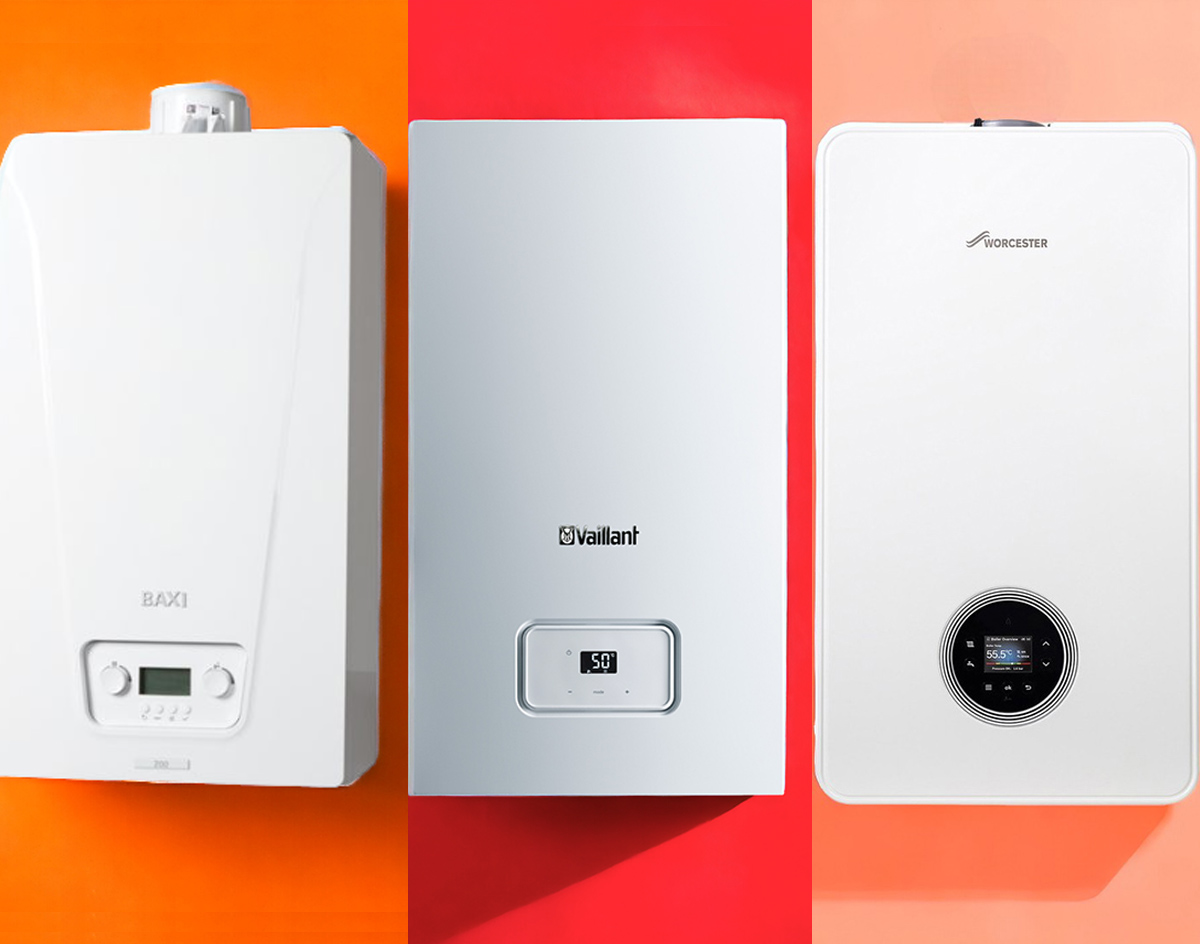
Understanding Different Types of Boilers
Boilers are an essential component of our homes, providing us with heating and hot water. It can be really daunting when you have to make a choice as to which boiler to purchase. In this guide we discuss different types of boilers, highlighting their features, advantages, and ideal applications to help homeowners make the best decision.
Combi Boilers – overview
Features: Combination (combi) boilers are the most popular type in the UK, known for their compact size and efficiency. They heat water directly from the mains when a tap is turned on, meaning there’s no need for a hot water storage cylinder or water tank. This makes combi boilers a space-saving option ideal for smaller homes and flats.
Advantages: Combi boilers provide unlimited hot water on demand and are energy-efficient, as they only heat the water you use. Their compact size saves significant space in your home.
Ideal Applications: Best suited for small to medium-sized homes with one bathroom, where the demand for hot water isn’t too high.
System Boilers – overview
Features: System boilers require a cylinder for storing hot water, but unlike traditional setups, they don’t need a tank in the loft. They take water directly from the mains, heat it, and store it in the cylinder until needed.
Advantages: System boilers can provide hot water to multiple taps at the same time without losing pressure. They are more efficient than conventional boilers and are easier to install than combi boilers in homes with multiple bathrooms.
Ideal Applications: Perfect for medium to large-sized homes with more than one bathroom and where hot water is needed by several outlets simultaneously.
Conventional Boilers – overview
Features: Also known as regular or traditional boilers, these require both a cylinder and a cold water tank. They can supply large volumes of hot water to multiple bathrooms at once, making them suitable for larger homes.
Advantages: Conventional boilers are ideal for areas with low water pressure and homes where a lot of hot water is used at the same time. They are compatible with older radiator systems which might not be able to cope with the high pressure of combi or system boilers.
Ideal Applications: Best for large households with several bathrooms, especially in areas where water pressure is an issue, or where there is an existing traditional heating and hot water system.
Condensing Boilers and Conclusion
Features: Not a type on its own, but a technology that can be applied to combi, system, and conventional boilers. Condensing boilers are designed to capture and reuse heat from exhaust gases that would otherwise be lost through the flue.
Advantages: They are more energy-efficient and environmentally friendly than non-condensing boilers.
Ideal Applications: Suitable for any household looking to replace their old boiler with a more energy-efficient and eco-friendly option.
Energy-Efficient Boilers
Features: While all new boilers must meet certain energy efficiency criteria, some models are designed to be exceptionally energy-efficient, using innovative technologies to minimize fuel consumption and reduce carbon emissions.
Advantages: These boilers can significantly reduce energy bills and carbon footprints, making them an excellent choice for environmentally conscious homeowners.
Ideal Applications: Ideal for any home, but particularly beneficial for those looking to make sustainable upgrades and save money on energy bills in the long term.
Choosing the right boiler for your home depends on various factors, including the size of your property, the number of bathrooms, and your hot water demands. By understanding the different types of boilers available and their advantages and ideal applications, you can make a decision that ensures efficient heating and hot water supply, tailored to your specific needs.



